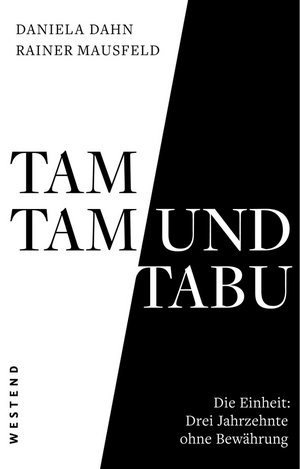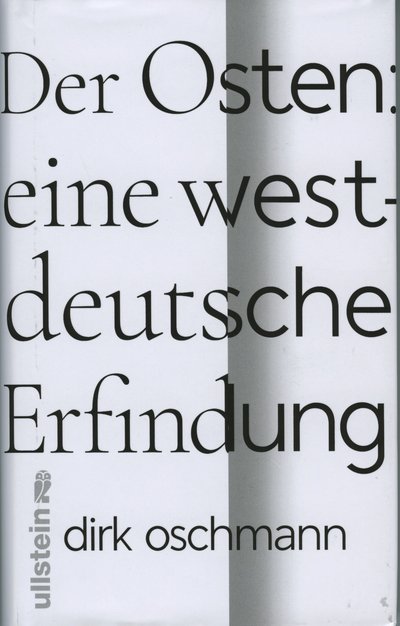Many Germans think different from the power elites
West German elites react with citizen bashing – especially against East Germans
by Karl-Jürgen Müller
After 2019, the SPD-related German Friedrich Ebert Foundation, published a second comprehensive study (84 pages, https://www.fes.de/studie-vertrauen-in-demokratie) on democracy in Germany in April 2023. The title of the study is: “Democracy Trust in Times of Crisis”. It is based on many surveys. The authors of the study are trying to gloss over the results, attaching labels like “longing for simplicity” or “conspiracy thinking” to unwelcome opinions. For example, the strong desire for referendums is said to be an expression of such a “longing for simplicity”. Or the statement that the Western world has “conspired against Russia and Putin to expand its own power”, “conspiracy thinking”. And with 55.9 % of respondents, the “conspiracy believers” also still favour having “citizens vote in regular referendums” – much more than the “non-conspiracy believers”, of whom only 20.8 % want regular referendums. Nevertheless, it is worth taking a thorough look at the poll results. Once again it becomes clear: the difference between published (power elite) opinion and the public opinion of the citizens is big, very big. Especially in eastern Germany. Only a few results can be reproduced here.
The study is based on a telephone and online survey of Germans aged 18 and over who are eligible to vote. The representative random sample comprises 2536 respondents (1658 telephone interviews and 878 online interviews). The survey period was from 11 July to 9 August 2022. The survey was conducted by the opinion research institute Infratest dimap.
Little optimism for the future
41.6 % of the respondents said that most people could not be trusted at all or not at all. 84 % said that future generations in Germany would fare somewhat (48.9 %) or even much worse (35.1 %). Further on in the study, it is also revealed that 75.3 % of those surveyed tended to agree or fully agreed with the statement that cohesion in society had declined.
How do Germans perceive the political and social conditions in which they live, so that so many have a rather poor view of humanity, so many see social cohesion at risk and so many are no longer optimistic about the future of coming generations?
The five most frequently mentioned concerns of the respondents are climate change (80.1 % great or very great concern), hatred and hostility (80 % great or very great concern), war (76.3 % great or very great concern), loss of social security (73.5 % great or very great concern) and inflation (73.3 % great or very great concern).
Not satisfied with
how democracy works in Germany
Most respondents (51.3 %) are not very or not at all satisfied with the way democracy works in Germany. This dissatisfaction is most evident in the lower classes where the rate is 67.2 % and in the eastern part of the country where it is 66 %. For more than half of the respondents (50.5 %), the state of democracy in Germany has deteriorated somewhat or even significantly in recent years. 68.2 % of respondents agree or strongly agree with the statement that there were not enough opportunities for citizens to participate beyond elections. 50.9 % agree or strongly agree with the statement that it no longer made a difference whether the SPD, the Greens, the FDP or the CDU/CSU are in government.
For only 24.5% of respondents, representative democracy is the best model of government, 33.4 % favour rule by experts (“expertocracy”), 41.1 % direct democracy. Here, too, it is the lower classes who expect the most from direct democracy (more than 50 %). This is not surprising, since the members of the lower class are the biggest losers in current politics and have had virtually no influence on the political decisions that affect them.
The following picture emerges for the parties and their supporters: supporters of the Greens favour expertocracy by more than 40 % over representative democracy (only 35.9 %), and the values for direct democracy are lowest here: only 22.6 %. In terms of scepticism towards direct democracy, FDP and SPD supporters follow those of the Greens more closely than supporters of other parties in the German Bundestag. And, even more than those of the Greens, the supporters of the FDP, at 45.4 %, prefer expertocracy to representative democracy (only 23.3 %). So much for the confidence of the supporters of the red-green-yellow coalition in the citizens and in democracy.
Majority without trust
in important institutions
Leaving aside the Federal Constitutional Court, most respondents today have little or no trust in important political institutions, be it the federal government (57.6 %), the Bundestag (57.7 %), the European Commission (68.5 %), the trade unions (52.4 %) or the employers’ associations (64.9 %). Most respondents also lack trust in the media. 58.2 % have little or no confidence in the public media, and 68.3 % in the private media such as television and newspapers.
When asked specifically about the problems of German democracy, the statement “Central campaign pledges are often not implemented” received the most mentions. 81.7 % of respondents consider this to be a major or very major problem.
Citizen bashing: “conspiracy beliefs”
What the study calls “conspiracy beliefs” was manipulatively formulated in five exaggerated statements: “the Western world has conspired against Russia and Putin to expand its own power”, “the ruling elites are pursuing the goal of replacing the German people with immigrants”, “the government has terrified the population in the Corona crisis in order to impose massive restrictions on fundamental rights”, “the Corona virus is a bioweapon that was deliberately developed to harm people” and “scientists deliberately exaggerate the risks of climate change in order to gain more money and recognition for their research”. Thus, it is also not surprising that most respondents rather disagree or disagree at all with these statements. However: The share of those respondents who tend to agree or agree completely still ranges between 18.1 and 36.3 %.
The statement that “the Western world has conspired against Russia and Putin to expand its own power” is assessed very differently depending on party preference. The approval ratings among supporters of the Greens are – unsurprisingly – the lowest, at only 11.9 %. The picture is different among supporters of other parties in the German Bundestag: 36.7 % of FDP voters, 57.1 % of AfD voters, 34.2 % of Die Linke voters and 34.9 % of supporters of Freie Wähler think there is some truth in this statement about the West and its relationship with Russia. And among non-voters it is also 35.6 %. Respondents from East Germany agree most with this statement: 44.8 %.
The citizen insult is mainly
directed against East Germans
After 17 June 1953, when a popular uprising in the GDR was violently quelled, Bertolt Brecht, who lived in the GDR, wrote his famous poem:
The Solution
After the uprising of the 17th June
The Secretary of the Writer’s Union
Had leaflets distributed in the Stalinallee
Stating that the people
Had forfeited the confidence of the government
And could win it back only
By redoubled efforts. Would it not be easier
In that case for the government
To dissolve the people
And elect another?
This is how Brecht characterised an attitude of power elites almost 70 years ago that we are reliving in a new colour today – when it comes to the people of East Germany. A few weeks ago, it made headlines for a short time when it was revealed that the chairman of the board of Axel Springer publishing house, Mathias Döpfner, had said about East Germans: “The Ossis [East Germans] are either communists or fascists. From Kaiser Wilhelm to Hitler to Honecker, without having enjoyed US re-education in between.” Döpfner had to apologise – but he remained chairman of the board of one of Germany’s biggest media groups. The CEO of the Axel Springer publishing house is not an isolated case. In a book published in February 2023, “Der Osten: eine westdeutsche Erfindung” [The East: A West German invention], the Leipzig professor of modern German literature Dirk Oschmann pointedly summarised: West Germans still occupy almost all leading positions in state, economy and society in West and East Germany. What is particularly perfidious about this is that the East Germans themselves are blamed for this. West German elites have been treating East Germans in a disparaging and degrading manner for more than 30 years, since 3 October 1990. They try to impose an East German “identity” on them that has little to do with reality. East Germans are labelled with stereotypes like populism, lack of understanding of democracy, racism, and conspiracy myths. More than 30 years after the fall of the Wall, the West still defines itself as the standard and the East as a deviation.
Indeed, if what the West German power elites want and what they do is supposed to be the “standard”, then a great many East Germans deviate from it. Thank God, I can only say. •
The right and the wrong Other
“It is true that it is part of the liberal, cosmopolitan self-image of most West Germans to celebrate the foreign and the other, to travel all over the world and admire distant cultures, to mark divergence, difference and alterity as particularly valuable. But it has to be the right Other, not the false Other that the East embodies, that one fears, that one excludes, ridicules, scorns and belittles. There is zero tolerance towards this false Other. In this way, the West makes the East a stranger in its own country.”
from: Oschmann, Dirk.
Der Osten: eine westdeutsche Erfindung. (The East: A West German Invention); Berlin 2023, p. 134f.

